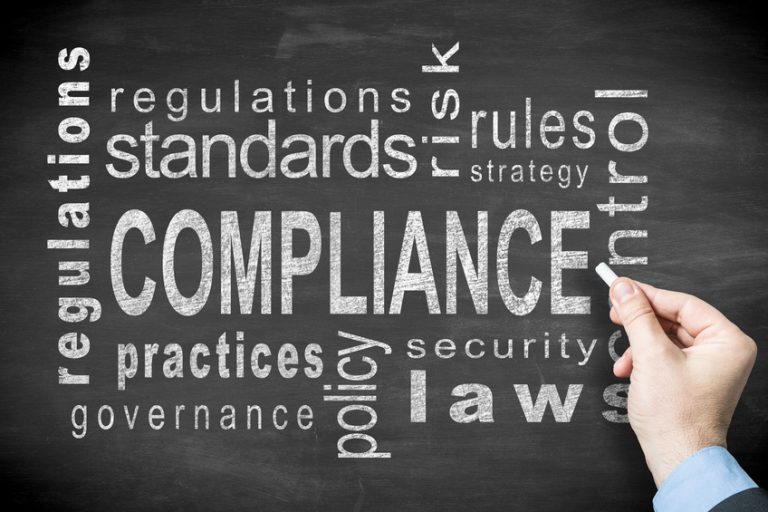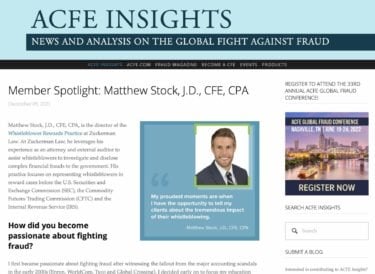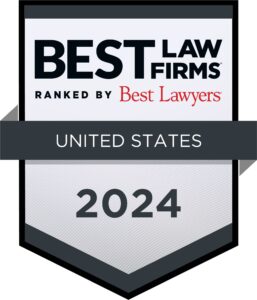Compliance Personnel, Auditors, Officers, and Directors Can Obtain SEC Whistleblower Awards
Compliance personnel, including internal auditors, external auditors, officers, and directors, may incorrectly assume that they are not eligible for awards under the SEC Whistleblower Program. Under certain circumstances, however, compliance and ethics personnel can be eligible for SEC whistleblower awards. Since 2012, the SEC has issued more than $1.3 billion in awards to whistleblowers, including awards to compliance officers.
We have successfully represented senior corporate professionals in obtaining awards at the SEC. And we have obtained substantial damages for compliance personnel, internal auditors, and corporate officers in whistleblower retaliation matters, including claims brought under the Sarbanes-Oxley whistleblower protection law.
Our leading whistleblower lawyers have represented senior compliance officials, including CCOs, in a wide range of industries, including financial services, pharmaceutical, software, and energy. Contact us today at 202-262-8959 for a free, confidential consultation.






Click here to read reviews and testimonials from former clients. For more information about protections for SEC whistleblowers, see our FAQ: anti-retaliation protections for SEC whistleblowers under the Dodd-Frank Act and Sarbanes-Oxley Act.
When Can Key Compliance Personnel Report to the SEC?
Generally, individuals who are integral to a company’s compliance are not eligible for awards, unless an exception applies. These individuals include employees whose principal duties involve compliance or internal audit responsibilities, employees of public accounting firms, and even the officers, directors, trustees, and partners of the relevant entity.
The exceptions to this rule, found in Section 21F-4 of the Securities Exchange Act, allow these individuals to report to the SEC and receive awards under the program if:
- they reasonably believe the disclosure is necessary to prevent conduct likely to cause “substantial injury” to the financial interest or property of the entity or investors;
- they reasonably believe the entity is engaging in “conduct that will impede an investigation of the misconduct”; or
- at least 120 days have passed either since they properly disclosed the information internally, or since they obtained the information under circumstances indicating that the entity’s officers already knew of the information.
The 120-day exception does not apply to external auditors who obtained the information during their audit of an issuer. Instead, those external auditors can report to the SEC immediately after they inform a superior in their accounting firm about improper or illegal client activity and the accounting firm fails to promptly report that information to the SEC. The first two exceptions also apply to external auditors when the violation is “material.”
Information Necessary to Prevent “Substantial Injury” to Financial Interest
To meet this exception, the whistleblower will need to demonstrate that responsible management or governance personnel at the entity were aware of the imminent violation and were not taking steps to prevent it. In short, the whistleblower must have a reasonable basis for believing that the entity is about to engage in conduct that is likely to cause substantial injury to the financial interests of the entity or investors, and that notification to the SEC is necessary to prevent the entity from engaging in that conduct.
In April 2015, the SEC issued an award of more than $1 million to a compliance professional who “had a reasonable basis to believe that disclosure to the SEC was necessary to prevent imminent misconduct from causing substantial financial harm to the company or investors.” The SEC has not, however, provided detailed guidance on what type of conduct is “likely” to cause “substantial financial harm.” This vagueness may work in whistleblowers’ favor, as the SEC has used its discretion to issue awards liberally.
Information About “Conduct that Will Impede an Investigation of the Misconduct”
Key compliance personnel can also report to the SEC if their information reveals conduct by the entity that will impede an investigation of the misconduct. While the SEC has not yet issued an award under this exception, the rule appears to be straightforward: if one has evidence of tampering with an internal investigation, then he or she is permitted to report to the SEC immediately. This improper conduct may include destroying documents, influencing witnesses, or engaging in other improper conduct that may hinder an SEC investigation.
120-Day Exception
The final, and most concrete, exception applies where at least 120 days have passed since the compliance personnel reported the information to their supervisor or to another person in the organization who is responsible for remedying the violation (i.e., audit committee, chief legal officer, chief compliance officer, or their equivalents). Alternatively, the individual may report the information at least 120 days after receiving the information, if it was received under circumstances indicating that any of the above-mentioned parties were already aware of it.
Importantly, any whistleblower who chooses this route should document the date of his or her disclosure in, for example, an email. Prior to receiving an award, all whistleblowers must prove their eligibility. Documentation evidencing that they waited 120 days might be the difference between obtaining a multimillion-dollar award or not obtaining any award.
The 120-day period begins to run either from the date the whistleblower informed other senior responsible persons at the entity, or his or her supervisor, about the violations, or from the date the whistleblower received the information, if the whistleblower was aware that these other persons already knew of the violations. Thus, an officer, director, or other designated person cannot receive a report of misconduct, and keep silent about it while waiting for the 120-day period to run, in order to become eligible for a whistleblower award.
In July 2023, the SEC awarded a whistleblower $9 million to a whistleblower who worked in a compliance position where the whistleblower reported the information internally to their supervisor and then waited at least 120 days to report the information to the SEC. See Release No. 97879 / July 12, 2023.
Rationale for Limitations on the Ability of Particular categories of Individuals to Receive Awards
The May 2011 SEC release (Release No. 34-64545) adopting the rules governing the SEC Whistleblower Program explains the rationale for limitations on the ability of particular categories of individuals to receive awards based on information that they learn in their professional capacity because of the positions that they occupy—e.g., officers, directors, trustees, or partners of an entity; employees with internal audit or compliance responsibilities; and employees or associates of either firms that are retained to investigate possible securities law violations, or independent public accountants that are retained to conduct engagements required by the securities laws:
As a general matter, these individuals occupy sensitive roles that can enable them to identify and stop possible violations of the securities law, and their diligence in doing so can be an important factor that companies or other entities achieve compliance. Thus, we believe it is a more efficient and cost-effective use of the Investor Protection Fund to provide further incentive to these individuals to fulfill those responsibilities rather than allowing them to use knowledge of possible wrongdoing to obtain an award by reporting to the Commission. That said, we have recognized certain exceptions to the exclusions that, in our view, reflect situations where the benefit of paying an award—in terms of reducing the harm to the entity and investors, and in preserving our enforcement capacity— justifies the cost associated with a claim on the Investor Protection Fund.
Whistleblower Protections for Compliance Officers and Compliance Personnel
The SOX whistleblower lawyers at Zuckerman Law have represented compliance officers and other employees performing compliance and ethics work at public companies.






Click here to read reviews and testimonials from former clients. Drawing on our substantial experience representing corporate whistleblowers, we have published a free guide to SOX titled Sarbanes-Oxley Whistleblower Protection: Robust Protection for Corporate Whistleblowers:
Dodd-Frank Whistleblower Protection for Compliance Officers
Protections for SEC Whistleblowers Post-Digital Realty (11-6-2020)Law Firm Representing Compliance and Ethics Whistleblowers
The experienced whistleblower lawyers at Zuckerman Law represent whistleblowers worldwide before the SEC under the Dodd-Frank SEC Whistleblower Program. The firm has a licensed Certified Public Accountant and Certified Fraud Examiner on staff to enhance its ability to investigate and disclose complex financial fraud to the SEC, and two of the firm’s attorneys served on the Department of Labor’s Whistleblower Protection Advisory Committee and in senior leadership positions at a government agency that protects whistleblowers.
Firm Principal Jason Zuckerman has been named by Washingtonian Magazine as a “Top Whistleblower Lawyer” and the firm has been ranked by U.S. News as a Tier 1 Firm in Labor & Employment Litigation.
Recently the Association of Certified Fraud Examiners published a profile of Matt Stock’s success working with whistleblowers to fight fraud:
Leading whistleblower law firm Zuckerman Law has substantial experience investigating securities fraud schemes and preparing effective submissions to the SEC concerning a wide range of federal securities violations, including:
- Accounting fraud;
- Investment and securities fraud;
- EB-5 investment fraud;
- Manipulation of a security’s price or volume;
- Fraudulent securities offerings and Ponzi schemes;
- Unregistered securities offerings;
- Investment adviser fraud;
- False or misleading statements about a company or investment;
- Inadequate internal controls; and
- Violations of auditor independence rules.
Contact us today for a free and confidential case review at (202) 262-8959.
Click below to hear SEC whistleblower lawyer Matt Stock’s tips for SEC whistleblowers:
For more information about the SEC Whistleblower Program, download our free ebook SEC Whistleblower Program: Tips from SEC Whistleblower Attorneys to Maximize an SEC Whistleblower Award and see the following resources:
- Leading SEC Whistleblower Law Firm Featured in Article About Growing Wave of Whistleblower Lawsuits
- SEC Whistleblower Reward Program FAQ
- Auditors’ and accountants’ guide to SEC whistleblower awards
- Whistleblower Protections and Incentives for Auditors and Accountants
- How to Report EB-5 Fraud and Earn an SEC Whistleblower Award
- CFTC Strengthens Anti-Retaliation Protections for Whistleblowers and Improves CFTC Whistleblower Award Program
- SEC Cracking Down on Ponzi Schemes
- SEC Scrutinizes “Fake News” Stock Promotion Schemes
- SEC Whistleblower Program: Exposing Insider Trading
- SEC Awards for Disclosures of Foreign Bribery or FCPA Violations
- Whistleblower Rewards and Bounties for Disclosures of Market Manipulation Schemes
- SEC Targeting Investment Adviser Fraud
- Compliance Personnel, Auditors, Officers and Directors Can Obtain SEC Whistleblower Awards
- Money Laundering and the SEC Whistleblower Program
- International Whistleblower Representation – SEC Whistleblower Attorney
- Anonymous Whistleblowing: Does the SEC Whistleblower Program Protect a Whistleblower’s Identity?
- SEC Awards for Disclosures of Foreign Bribery or FCPA Violations
- Securities Fraud Enforcement Action Prompts the Question: What Was the Company Smoking?
- Compliance Officer Whistleblower Representation
- SEC Whistleblower Program: What is the SEC Form TCR?
- Tale of Two Whistleblowers: Lessons Learned from Today’s SEC Whistleblower Award
- Whistleblowers Help CFTC Obtain Record Penalties for Commodities Fraud
- Report Underscores Importance of Whistleblower Rewards and Protections for Internal Auditors
- SEC Sanctions: Whistleblower Reference Guide
- Protections and Rewards for Cybersecurity Whistleblowers
- CFTC Announces Second Whistleblower Award in 2016 as the Agency’s Whistleblower Reward Program Picks Up Steam
- EB-5 Visa Scandal Underscores the Critical Role Whistleblowers Play in Exposing EB-5 Fraud
- SEC Enforcement Director Touts Success of SEC Whistleblower Program
- SEC Whistleblower Program Not Limited to Corporate Insiders
- SEC Pays $3M Award to Whistleblower
- SEC Draft Strategic Plan Affirms the Importance of the SEC’s Whistleblower Reward Program
- Whistleblower Lawyer Interviewed About SEC Whistleblower Award
- Wall Street Journal Quotes Jason Zuckerman on Dodd-Frank SEC Regulations
- SEC Whistleblower Lawyer Quoted in National Law Journal About SEC Whistleblower Program
- SEC Whistleblower Lawyer Zuckerman Quoted About SEC Whistleblower Award for Independent Analysis
- SEC Whistleblower Lawyer Jason Zuckerman Quoted About Tips for SEC Whistleblowers
- Whistleblower Lawyer Jason Zuckerman Quoted About SEC Whistleblower Award
- Whistleblower Lawyer Interviewed About the Rise of Cybersecurity Whistleblowing
- Whistleblower Attorney Zuckerman Quoted in Washington Post About SEC Order
- Whistleblower Attorney Dallas Hammer Interviewed by Bloomberg About Dodd-Frank Protected Whistleblowing
- SEC Whistleblower Lawyer Zuckerman Quoted About SEC Whistleblower Award for Independent Analysis
- Audit committees need to dig into personal relationships
- Whistleblower Bounties Pose Challenges
- CFO Magazine Quotes Whistleblower Attorney Jason Zuckerman About Dodd-Frank Whistleblower Rules
- Fiscal Times Quotes Jason Zuckerman About Dodd-Frank Act Whistleblower Reward Provisions
- Whistleblower Attorney Jason Zuckerman Quoted About Battle Over Corporate Whistleblower Rules
The September 2020 SEC release (Release No. 34-89963) adopting amendments to the rules governing the SEC Whistleblower Program explains the rationale for requiring compliance professionals and auditors to report internally before blowing the whistle to the SEC.
Based on these same considerations, we are retaining Rule 21F-4(b)(4)(iii), which generally requires certain employees in managerial, compliance, and other positions as well as auditors to wait 120 days before reporting to the Commission, if they want their information to be considered “original” for purposes of award eligibility. As we explained in adopting this rule, “we believe there are good policy reasons to exclude information from consideration . . . where its use in a whistleblower submission might undermine the proper operation of internal compliance systems.”210 In other words, repeal of this rule could create incentives for such employees and auditors to report potentially unlawful conduct to the Commission in hopes of an award instead of fulfilling their professional responsibilities within those internal compliance systems by internally reporting information and allowing a reasonable response time.211 While these personnel will lack retaliation protection under Section 21F until they report to the Commission, this compromise is appropriate in light of the narrow categories of personnel covered by Rule 21F-4(b)(4)(iii) and the need to preserve the proper operation of internal compliance systems.
The SEC construes the Rule 21F-4(b)(4)(v) exceptions narrowly, so it is important to document how those exceptions apply and fit within one of the exceptions to clarify for an award. See Release No. 96232 (Nov, 2022).






